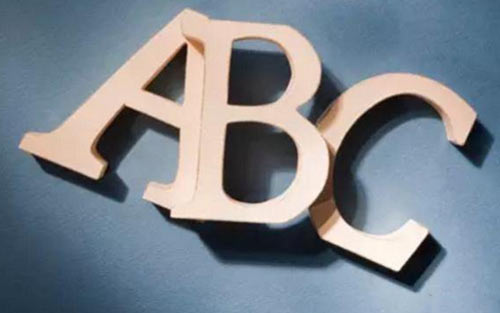英语中具有使役意义的动词较多,跟人们常常说的使役动词不是一个概念.通常我们说使役动词,指的是make, have, let这三个动词,下面小编告诉你英语中使役动词的用法,大家一起来看看吧!
英语中使役动词的用法:
1.have的用法
1). have 宾语 省to不定式:表示主语“要”“使”“让”宾语干某事,宾语和宾补之间是一种主动关系.而且还可以与情态动词will, would连用,不用于被动结构.
The rich lady had the singer eat with his servants.
I will have him come and help you.
2). have 宾语 现在分词:表示让某人或物连续进行某动作或处于某状态中,宾语和宾补是一种主动关系.亦可转化为“劝说,鼓励”宾语干某事.
The two cheats had the lights burning all night long.
He had us waiting for him three hours yesterday.
I have them all talking to each other in English. 我鼓励他们用英语交谈.
3). have 宾语 过去分词:表示主语的主观意志,即主语让别人为自己完成某事,宾语和宾补是动宾关系.还可以表示主语遭受到来利或不测的事.
Tom said he had had his TV set repaired.
Tom had his wallet stolen on the bus yesterday.
“别人”在句中一般不出现,这是它与结构1)的区别所在.试比较:
Have you washed your clothes? 你洗了衣服了吗?(自己洗)
Have you had your clothes washed? 你叫人洗了衣服了吗?(别人洗)
4). have 宾语 形容词/副词/介词短语作宾补
Please have your tickets ready.
The Emperor had nothing on.
I am sure I’ll have him in the argument.
2.let的用法
1). let 宾语 省to不定式:表示主语“要”“使”“让”宾语干某事,宾语和宾补之间是一种主动关系,罕用于被动语态.有时也可指一种假设.let后不能接现在分词,过去分词作宾补.
Let them stay in the classroom and do their exercises themselves.
Let AB be equal to CD. 假设AB等于CD.
2). let 宾语 副词/介词短语作宾补
Let me in and let them out.
Who let you into the building?
3.make的用法
1). make 宾语 省to不定式:表示主语“要”“使”“让”宾语干某事,宾语和宾补之间是一种主动关系.此结构常用被动结构.make后不接现在分词作宾补.
The teacher made the naughty boy stand there for an hour.
The naughty boy was made to stand there for an hour.
2).make 宾语 过去分词,此结构中的宾语指人时常用到反身代词.
He raised his voice to make himself heard.
Can you easily make yourself understood in English?
They will make an important plan known to the public soon.

3). make 宾语 形容词,宾语亦可是从句.
The news made her happy.
He made it clear that he objected to the proposal.
动词ing作补语可以位于使役动词make后吗:
(1)make 后面不接现在分词作宾语补足语,
直接不带to不定式作宾语补足语,但是被动需要加to
【结构为:主语+make sb/sth do sth】
Her jokes made us all laugh. 她说的笑话把我们都逗乐了
They tried to make every cent do the work of two. 他们设法把一分钱当两分钱用。
We must make him work harder. 我们必须使他更加努力工作。
The boss made Tom work long hours. 老板逼着汤姆长时间地干活。
His appearance made me laugh. 他的样子使我发笑。
His cheerful joke made us forget our weariness. 他讲的令人愉快的笑话使我们忘记了疲劳。
What makes the grass grow? 青草是靠什么生长的?
But this did not make them waver or retreat. 但这并没有使他们动摇或退缩。
I can't make the TV work. 这台电视机我修不好。
The sight of the dead man made his hair stand on end. 他见到死人吓得毛骨悚然
【结构为:主语+be made to do sth】
The children must be made to clean their own room. 必须叫孩子们打扫自己的房间。
He was made to wait for over an hour. 别人叫他等了一个多小时。
We were made to work all night. 我们被迫干了一整夜。
(2)用于动词+宾语+现在分词作宾语主要用下面几个使役动词
【1】have +sb/sth doing sth 使某人一直处于做某事的状态
We can't have you going everywhere by taxi. 我们不能让你坐出租汽车到处跑。
I can't have you playing truant. 我不允许你逃学。
We have him trying an experiment. 我们让他试做一个实验。
We'll soon have you walking about again. 不久我们就能让你起来活动了。
By the time he came back, she had had a good fire going and had taken the stove into the room. 等他回来的时候,她已经把火炉生好,端到屋里来了。
Bronwen tried to have her talking.But no use. 布朗温想让她说话,但没有成功。
She'll have you doing all the housework if you're not careful. 如果你不仔细的话,她就要你干所有的家务。
He soon had them all laughing. 他很快让大家发笑了。
I won't have you smoking at the young age. 我不许你这样(小小)的年纪就抽烟。
Now,George,I will not have you shouting at me that way. 那么,乔治,我不许你对我那样喊叫。
We can't have that sort of thing happening. 我们不允许那种事发生。
We shall soon have the mists rising. 我们很快就会看到雾升起来。
I woke up in the night and found we had water dripping through the ceiling. 我夜里醒来,发现天花板在滴水
【2】leave sb/sth doing sth使某人一直处于做某事的状态
He left me waiting outside in the rain. 他让我站在雨里等候。
Why did you leave the guests standing there? 你为什么让客人站在那儿?
They walked off and left me sitting there all by myself. 他们走了,让我孤零零一个人坐在那里。
She always leaves the light burning all night long. 她常常让灯整夜地亮着。
Our roaring guns left the enemy trembling with fear. 我们的隆隆炮声使敌人胆战心惊。
使役动词make用法说明:
make 用作使役动词,表示“使”,使用时注意以下几点:
1. 后接不定式的复合结构作宾语时,不定式不能带 to;但是,若make为被动语态,则不定式必须带to。如:
Though he had often made his little sister cry, today he was made to cry by his little sister. 虽然他曾经常把他小妹妹弄哭,但今天他被他小妹妹弄哭了。
注意,若make不表示“使”,而表示其他意思则情况不同,比如下面两句,make后的不定式不是宾语补足语,而是目的状语:
We make candles to give light. 我们做蜡烛照明。
He made a box to put his money in. 他做了个盒子来装钱。
2. 其后除可接不带to的不定式作宾语补足语外,还可以接以下成分:
(1) 接过去分词作宾语补足语。如:
He tried to make his ideas known. 他设法让别人知道他的想法。
She had to shout to make herself heard. 她必须大声喊才能让人听见她说话。
注意,其后通常不接现在分词作宾语补足语。如:
他让司机在外面等他。
误:He made the driver waiting for him outside.
正:He had the driver waiting for him outside.
(2) 接形容词作宾语补足语。如:
Have I made myself clear? 我的意思说清楚了吗?
We’ll do our best to make you happy. 我们会尽一切努力使你幸福。
(3) 接介词短语作宾语补足语。如:
Sit down and make yourself at home. 请坐,不要拘束。
3. make(使)通常不接现在分词的复合结构作宾语。要表示使某人 或某事一直做某事或处于做某事的状态中,英语可用 have sb doing sth。如:
他讲的滑稽的笑话使大家都笑了。
误:His funny joke made everyone laughing.
正:His funny joke made everyone laugh.
let用法三注意:
注意一:用作使役动词,表示“让”,其后接不定式的复合结构时,不定式不带 to。如:
Let me have a try. 我来试一试。
Let me pay for myself. 让我自己来付我的那份钱。
If you want help, let me know, will you? 如果你需要帮助,告诉我,好吗?
注意二:用作宾语补足语的动词与副词连用时,若意思明确,往往省略动词而只保留副词。如:
Let him (come) in. 让他进来。
Let her (pass) by. 让她过去。
注意三:let 很少用于被动语态。在被动语态中可改用 allow或其他表达。如:
After questioning he was allowed to go home. 经过问讯后,他得到允许,可以回家。
与“英语中使役动词的用法”相关文章
赞(0)
12
12
分享:

